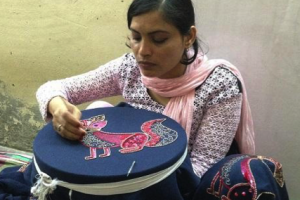When Deregulation is Deadly
The Gender Policy Report
 On September 3, 1991, the Imperial Food Products plant in Hamlet, North Carolina burst into flames. Twenty-five people died, trapped behind the locked doors of the red-brick factory. Most of the victims were women; many were women of color, most were single moms. Another sixty people were injured, and the blast left more than fifty children orphaned. Local officials called the fire an accident, but the women and men who worked at Imperial had been made vulnerable by the factory’s owners as well as public policy.
On September 3, 1991, the Imperial Food Products plant in Hamlet, North Carolina burst into flames. Twenty-five people died, trapped behind the locked doors of the red-brick factory. Most of the victims were women; many were women of color, most were single moms. Another sixty people were injured, and the blast left more than fifty children orphaned. Local officials called the fire an accident, but the women and men who worked at Imperial had been made vulnerable by the factory’s owners as well as public policy.









Spread the word